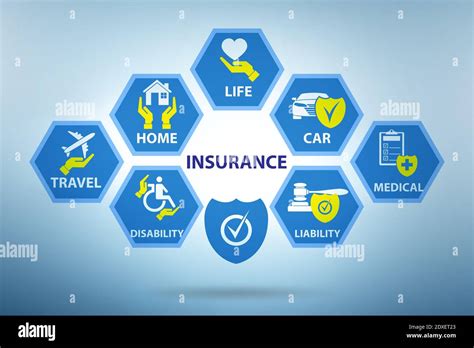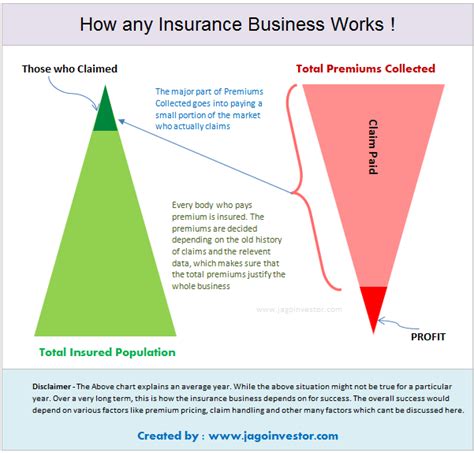How Much Is Company Insurance

Company insurance, also known as business insurance or commercial insurance, is a vital aspect of protecting any organization's financial stability and ensuring its long-term success. The cost of company insurance can vary significantly depending on numerous factors, making it a complex and nuanced topic. In this comprehensive guide, we will delve into the world of company insurance, exploring its different types, factors influencing premiums, and strategies to find the most suitable coverage at an affordable price.
Understanding the Complexity of Company Insurance Costs

The price of company insurance is not a one-size-fits-all proposition. It is influenced by a multitude of factors, including the industry, location, size of the business, number of employees, and the specific risks associated with the company’s operations. Additionally, the insurance provider and the coverage options chosen play a significant role in determining the overall cost.
Types of Company Insurance and Their Costs

Company insurance encompasses a wide range of coverage types, each designed to address specific risks and liabilities. Here’s a breakdown of some common types of company insurance and their associated costs:
General Liability Insurance
General liability insurance is a fundamental coverage that protects businesses from various third-party claims, including bodily injury, property damage, and advertising injuries. The cost of this insurance can vary widely, typically ranging from 300 to 1,000 per year for small businesses, with larger companies potentially paying tens of thousands of dollars annually.
Professional Liability Insurance
Also known as errors and omissions (E&O) insurance, professional liability insurance is crucial for businesses offering professional services. It covers legal costs and damages resulting from client lawsuits due to negligence, errors, or omissions. The cost of this insurance can be substantial, often ranging from 500 to 3,000 per year for small businesses, while larger firms may pay upwards of $10,000 annually.
Workers’ Compensation Insurance
Workers’ compensation insurance is a legal requirement in most states and provides coverage for employees who suffer work-related injuries or illnesses. The cost of this insurance is typically based on the company’s payroll and the nature of the work. Rates can vary from 0.5% to 25% of the payroll, with higher-risk industries incurring higher costs.
Commercial Property Insurance
Commercial property insurance protects a business’s physical assets, including buildings, equipment, and inventory. The cost of this insurance depends on the value of the property and its location. Rates can vary significantly, with small businesses paying anywhere from 500 to 2,000 per year, while larger businesses may incur costs upwards of $10,000 annually.
Business Interruption Insurance
Business interruption insurance provides coverage for lost income and ongoing expenses when a business is forced to shut down due to covered perils, such as a fire or natural disaster. The cost of this insurance is typically based on the business’s revenue and can range from a few hundred dollars to several thousand dollars per year.
Cyber Liability Insurance
In today’s digital age, cyber liability insurance has become increasingly important. It covers businesses against financial losses resulting from cyber attacks, data breaches, and other cyber-related incidents. The cost of this insurance can vary significantly, with small businesses paying around 500 to 1,500 per year, while larger companies may pay upwards of $5,000 annually.
Factors Influencing Company Insurance Premiums
Several key factors influence the cost of company insurance premiums. Understanding these factors can help businesses make informed decisions when selecting coverage and negotiating rates.
Industry and Business Size
The industry in which a business operates plays a significant role in determining insurance costs. High-risk industries, such as construction or manufacturing, typically face higher insurance premiums due to the increased likelihood of accidents and claims. Similarly, larger businesses often pay more for insurance due to their greater exposure and potential for larger claims.
Location and Business Operations
The location of a business and its specific operations can impact insurance costs. Businesses located in areas prone to natural disasters or with higher crime rates may face higher premiums. Additionally, the nature of a business’s operations, such as whether it involves hazardous materials or high-risk activities, can influence insurance rates.
Claims History and Risk Management
A company’s claims history is a critical factor in determining insurance premiums. Businesses with a history of frequent claims may face higher rates or even difficulty finding coverage. Implementing effective risk management strategies and maintaining a low claims frequency can help reduce insurance costs over time.
Deductibles and Coverage Limits
Insurance premiums are often influenced by the deductible and coverage limits chosen by the business. Opting for higher deductibles can result in lower premiums, as the business assumes more financial responsibility. Similarly, increasing coverage limits can provide more comprehensive protection but may also increase the cost.
Strategies for Finding Affordable Company Insurance
While the cost of company insurance can be substantial, there are strategies businesses can employ to find affordable coverage. Here are some tips to help reduce insurance costs:
Shop Around and Compare Quotes
Obtaining multiple quotes from different insurance providers is essential to finding the best rates. By comparing quotes, businesses can identify the most competitive prices and choose the coverage that best suits their needs.
Bundle Policies
Bundling multiple insurance policies with the same provider can often result in cost savings. Many insurance companies offer discounts when businesses purchase multiple policies, such as combining general liability, professional liability, and cyber liability insurance.
Implement Risk Management Strategies
Implementing effective risk management strategies can help reduce insurance costs over time. This includes identifying and mitigating potential risks, training employees on safety protocols, and maintaining a safe work environment. By demonstrating a commitment to risk management, businesses can often negotiate lower premiums.
Choose the Right Coverage Limits
Selecting the appropriate coverage limits is crucial to balancing protection and affordability. While it may be tempting to opt for the highest limits, businesses should carefully assess their specific needs and choose coverage limits that provide adequate protection without incurring excessive costs.
Review and Adjust Coverage Regularly
Insurance needs can change over time, so it’s essential to regularly review and adjust coverage. As a business grows or its operations evolve, its insurance requirements may also change. Staying proactive and ensuring coverage remains up-to-date can help avoid gaps in protection and unnecessary expenses.
The Importance of Expert Advice

Navigating the complex world of company insurance can be challenging, and seeking expert advice can be invaluable. Insurance brokers and agents with specialized knowledge in commercial insurance can provide tailored recommendations and help businesses find the most suitable coverage at the best possible price. They can also assist in understanding the fine print of insurance policies and ensure that businesses are adequately protected.
Conclusion: The Bottom Line on Company Insurance Costs
The cost of company insurance is a multifaceted consideration, influenced by a wide range of factors. By understanding the different types of insurance, the factors that impact premiums, and the strategies for finding affordable coverage, businesses can make informed decisions to protect their operations and financial well-being. Remember, the right insurance coverage is an essential component of any successful business strategy.
How much does general liability insurance cost for a small business?
+General liability insurance costs for small businesses can range from 300 to 1,000 per year. However, the exact cost depends on various factors, including the business’s industry, location, and claims history.
Are there any ways to reduce workers’ compensation insurance costs?
+Yes, there are strategies to reduce workers’ compensation insurance costs. Implementing effective safety measures, providing regular training to employees, and maintaining a safe work environment can help lower insurance premiums over time.
What is the average cost of cyber liability insurance for a small business?
+The average cost of cyber liability insurance for small businesses typically ranges from 500 to 1,500 per year. However, this can vary based on the business’s industry, size, and the level of coverage required.



